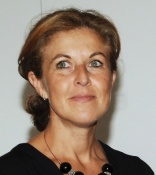Home › magazine › european reports › New business in graffiti
New business in graffiti
14th of November 2016Two scientists in France are starting a business to try and commercialise their graffiti removal product, reports Christian Bouzols.
Two scientists working for a startup incubator at Alès, in the South of France, are aiming to reach the retail market and public authorities with their product.
Cécile Franc is a trained chemist. Her partner Claire Perrin-Tricaud is a biologist. These two female scientists at a startup called Sets Solution have just developed a revolutionary product to wipe off graffiti from practically every kind of surface.
The project has been ongoing ever since the idea took shape in that startup launched by the Ecole des Mines d’Alès (EMA) (Alès Mining College). “We’re now ready,” says Claire Perrin-Tridau.
“The final stages of development were carried out in a laboratory at the EMA for the testing of materials. We’ve performed conclusive trials on several surfaces: painted and porous concrete, rendering, pointed stone, plastics such as that used for tarpaulins and advertising displays, traffic signs, etc.”
Large industrial companies are on the point of adopting the product.
Its instructions for use are exceedingly simple. The product is unbelievably easy to use. “It is formulated as a gel which you apply on the wall with a roller. You then have to rub and wash it down. Depending on the type of surface, or the age of the paint, the method of application might vary a bit. Ideally, treatment needs to be carried out as soon as possible to get the best results.”
Won’t damage coating
The use of high pressure cleaners to clean off graffiti on building façades can sometimes damage their coating. This new product doesn’t eat into the wall material. “With one litre costing €15, you can cover about two square metres of graffiti. You would need between 30 minutes and one hour to clean it off, which is easily doable by a single individual.
“Another virtue of this new product lies in its composition. Our idea was to develop something soft, water based. We were aiming at a product with minimal impact on the user and the environment.”
Veolia, a French transnational company, is already using it. Another major corporation, the electric utility Énédis (formerly ERDF) is interested in the product and negotiations are under way.









